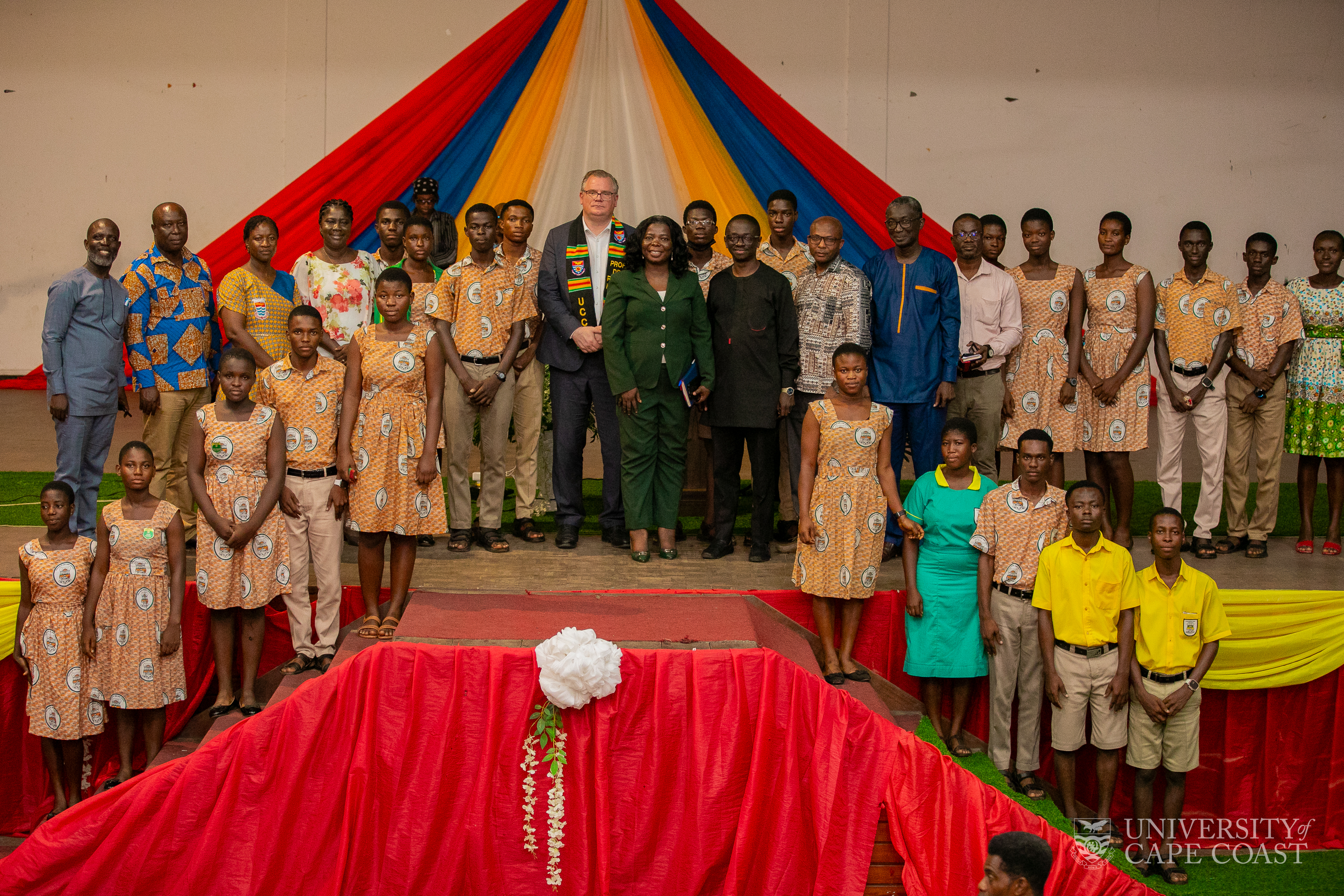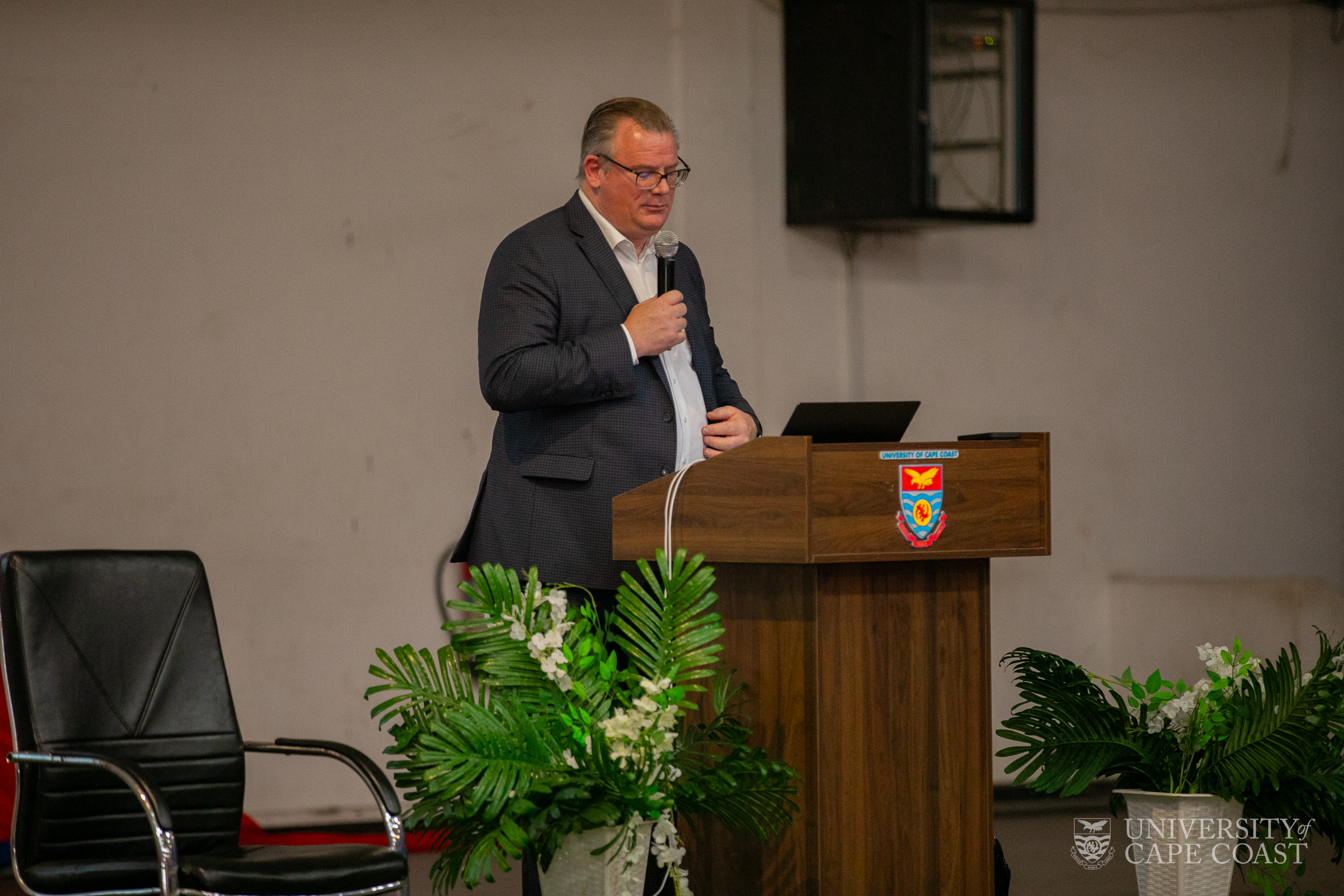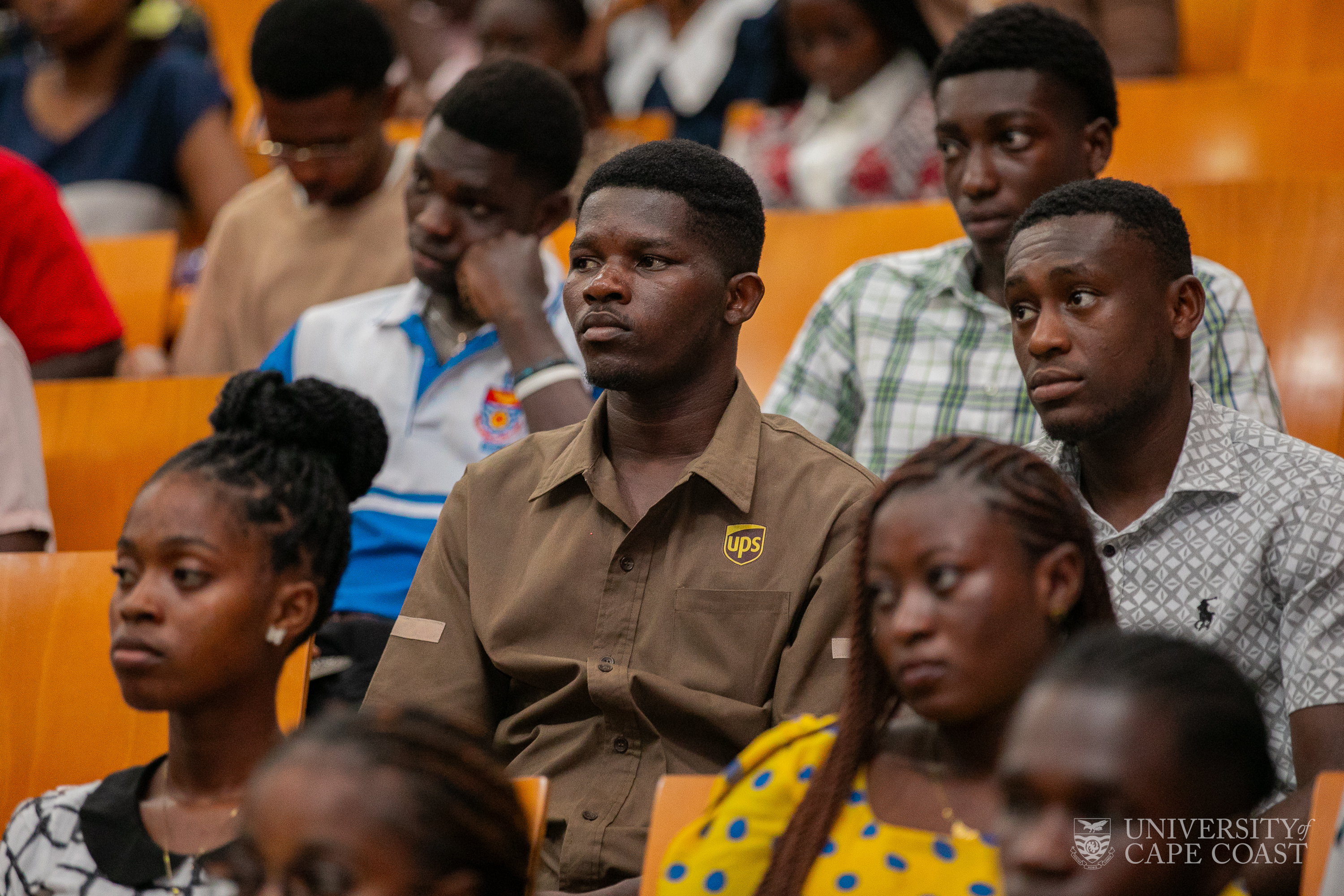Lecturers and other stakeholders in the tertiary education sector have been advised to guide students in the responsible use of Artificial Intelligence (AI).
Delivering a public lecture, Prof. Dr. Ralf Meyer emphasized the importance of fostering critical thinking and problem-solving skills rather than encouraging over-reliance on technology.
“"One thing is sure, our students will use this technology in their jobs, professions, or research in the future. There is no question about that. Whether they work for a large company, become self-employed, or engage in research, AI will be part of their toolkit. Therefore, we must teach them how to use it responsibly,” he said.
Prof. Dr. Ralf Meyer
Sharing his approach, Prof. Meyer explained:“ what I do usually is that I increase the level of my assignments so much that students cannot complete these assignments without AI and also with their own thought process. We have to adjust our assignments.”
The lecture, organised by the College of Humanities and Legal Studies, was held under the theme: “Application of Generative Artificial Intelligence to Academic Work: Insights, Risks, Returns, and Strategies.”
Prof. Meyer noted that AI is not merely a “buzzword” but a transformative reality reshaping education. He highlighted that many African countries are optimistic about AI and urged the University of Cape Coast, which he described as a research-driven institution, to embrace AI and prepare both faculty and students for an AI-powered future.
According to him, AI offers significant benefits, including personalized instruction, data analysis, and improved access to quality education in remote areas.
He stressed the need to integrate AI into curricula to equip students for a technology-driven world.
However, he cautioned that AI adoption should complement traditional teaching methods rather than replace them, ensuring that human judgment and creativity remain central to learning.
Some students at the event
Prof. Meyer mentioned “ the creative spark, human understanding, complexity, expert knowledge and AI hallucinations" as the five human arguments against AI researchers.
He said Generative AI had evolved from a novelty to a powerful co-pilot across teaching, assessment, research and administrations, especially for information , writing, and communicating tasks.
Prof. Meyer recommended that universities and scientific institutions should prepare for AI-generated and possibly AI-driven discoveries by updating rules on authorship and prizes, infrastructure, and focusing human effort on creativity, judgement and real-work.
The public lecture was chaired by a former Pro Vice-Chancellor, Prof. Rosemond Boohene, who indicated that plans were advanced for the University of Cape Coast to implement policies on AI usage and called on students to use AI ethically.



